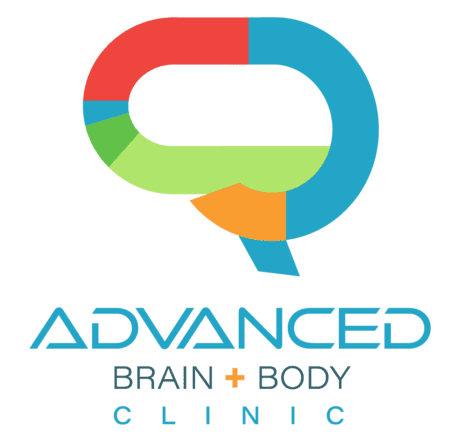Post-Traumatic Stress Disorder Treatment Minneapolis, MN
Our PTSD Treatment Plans – Putting You in Control of Your Brain Health
As our name suggests, our PTSD doctors will look at your health holistically. Many physical health factors can influence your mental health and can prevent common PTSD treatments from working as expected. If you need help with severe PTSD, our providers can take a deep look at your whole-body health to see which factors may be preventing your body from responding to common PTSD treatments. Through laboratory analysis and genetic testing, our providers can identify genetic abnormalities and address hormone imbalances, vitamin deficiencies, inflammation, and thyroid issues to improve your brain’s response to PTSD treatments.
Advanced PTSD Treatments
At our Minneapolis PTSD clinic, we offer advanced PTSD treatment options working with most major insurance providers. These advanced treatments work differently than common antidepressant medications and can provide hope when other PTSD treatments aren’t working. These cutting-edge treatment methods can help stabilize even the most severe cases of PTSD and suicidal thoughts.
- Transcranial Magnetic Stimulation (TMS)
- Ketamine Therapy/esketamine (Spravato)
- Individual or Group Psychotherapy “talk therapy”
- Holistic practices
- Meditation/breathing exercises
- Exercise
- Eating healthy
- Getting enough sleep
- Maintaining healthy relationships
What is PTSD?
Post Traumatic Stress Disorder is a mental health condition that is typically triggered by a stressful event. Often associated with veterans, the majority of PTSD cases are actually associated with domestic violence. Women are twice as likely to be affected by PTSD, and Latinos, African Americans, and Native Americans/Alaska Natives are disproportionately affected by PTSD (psychiatry.org).
Signs and Symptoms
PTSD symptoms linger long after the triggering event and cause significant distress or problems with daily functioning. Signs and symptoms typically develop within three months following the triggering event. Possible signs and symptoms of PTSD include:
- Difficulty sleeping or concentrating
- Feeling on edge or overly watchful
- Flashbacks or repeated intrusive thoughts/memories of the event
- Nightmares
- Avoiding people, places, or things that remind them of the traumatic event
- Feeling detached from others
- Strong adverse reactions to ordinary sounds, smells, feelings, places, or other things that remind them of the traumatic event
- Negative feelings about oneself or feeling ashamed
- Inability to remember important pieces of the event
- Behaving recklessly
- Having angry outbursts
Causes
PTSD is a mental health disorder that develops in people who have experienced a traumatic event or a prolonged traumatic experience.
Examples of traumatic events that could trigger PTSD:
- War
- Life-threatening accidents such as car accidents
- Rape and sexual assault
- Bullying
- Terrorist attacks
- Natural disasters
- Home invasions
- Witnessing a shooting
- Domestic violence
Treatments of Post Traumatic Stress Disorder
Common PTSD Treatments
PTSD is typically treated with psychotherapy, often referred to as “talk therapy”. Common types of psychotherapy used to treat PTSD include cognitive processing therapy (CPT), prolonged exposure therapy (PET), eye movement desensitization and reprocessing therapy (EMDR) and others. Psychotherapy may be accompanied by traditional antidepressant medications such as SSRIs or SNRIs as part of your PTSD treatment plan.
Is Your PTSD Treatment Working?
If psychotherapy and traditional antidepressant medications aren’t enough, Advanced Brain and Body Clinic can develop a personalized treatment plan to help you get your life back. Combining innovative treatment methods and laboratory analysis, our mental health providers will work with you to create a targeted treatment plan that considers your genetics, medical history, inflammatory markers, hormones, vitamins and mineral levels, lifestyle, personal preferences, and your insurance coverage. Through our precise approach, we have been able to see significant improvement in 75% of patients who have not found relief from other treatments.

